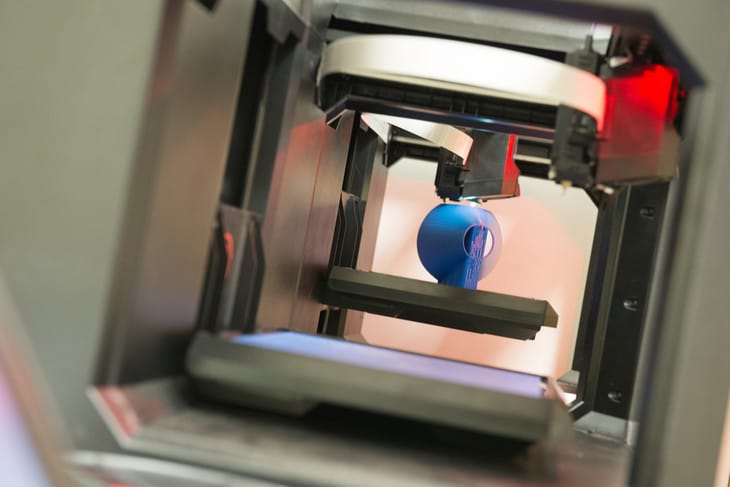
From something quite obscure a few years ago, 3D printing is now at the point where you can obtain a degree focused on the technology.
3D printing, or Additive Manufacturing, as it is sometimes known, has long been a single-course subject in engineering schools, or as a tool one might learn as part of lab work. But that’s changing.
Today it is possible to obtain a degree specifically for additive manufacturing. Two that I know of are from Penn State and the University of Maryland.
Penn State’s new program, to be offered this fall, includes the Master of Science in Additive Manufacturing (MSAMD) for onsite students, and a Master of Engineering in Additive Manufacturing (MEngAMD) that’s delivered online. They explain:
The MSAMD and MEngAMD programs will provide unique, hands-on experiences in all aspects of the additive-manufacturing process. All students enrolled in the program, whether resident at University Park campus or online, will be required to spend time on site, working in Penn State’s state-of-the-art additive manufacturing laboratory, the Center for Innovative Materials Processing through Direct Digital Deposition (CIMP-3D) as well as the Material Characterization Laboratory in the Millennium Sciences Complex and the Factory for Advanced Manufacturing Education in Industrial and Manufacturing Engineering. Students will gain experience working with polymer as well as metallic additive manufacturing systems.
The MS/MEng programs in AMD will prepare students to:
- Apply foundational knowledge, critical thinking, problem solving, and creativity in the uses of additive manufacturing and associated design tools and methods.
- Grow as leaders in manufacturing while maintaining the highest ethical standards in applying additive manufacturing to industry-relevant problems and design challenges.
- Strive for the advancement of the state-of-art in additive manufacturing and design.
- Develop innovative solutions through new design paradigms in their respective industries.
The University of Maryland’s program is called the Professional Master of Engineering in Additive Manufacturing Program, which includes these core courses:
- Engineering Design Methods
- Engineering Decision Making
- Engineering Optimization
- Applied Machine Learning for Engineering and Design
- Additive Manufacturing
- Advanced Mechanics of Materials
And they offer a number of interesting electives to accompany the core material, including:
- Manufacturing with Polymers
- Composite Materials
- Life Cycle Cost and System Sustainment Analysis
- Additive Manufacturing for Aerospace, Energy and Water Applications
- Applied Topology Optimization
And there are certainly other programs at other institutions worldwide.
The reason for these programs is simply that performing professional 3D printing is in fact a complex business. While it is relatively easy to teach someone to operate a 3D printer, it is not so easy to do so efficiently and effectively. That’s where the professional disciplines take over and apply time-tested learnings based on over twenty years of 3D printing activity in the industry.
To me, these programs are a sign that 3D printing has truly taken hold in society, as the graduates from these programs will no doubt venture forward into business situations where they will leverage 3D printing technology of today – and tomorrow — to create a new world for everyone.
Via Penn State and University of Maryland

